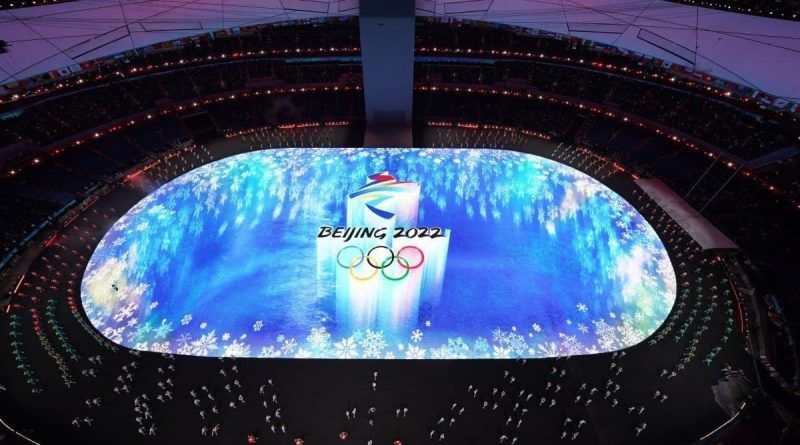Xi Jinping announced the opening of the Olympic Winter Games in Beijing
Xi Jinping announced the opening of the Olympic Winter Games in Beijing
Xi Jinping announced the opening of the Beijing Winter Olympics. A fireworks display of many fireworks marked the start of the Olympics, preparations for which have been hampered by the COVID-19 pandemic and criticism of human rights abuses by Chinese authorities.
The ceremony at the partially filled National Stadium, also known as the “Bird’s Nest” – the site of the triumphant launch of the 2008 Summer Games in Beijing – was filled with images of ice and snow. Xi Jinping’s speech was followed by a performance featuring figure skaters in national red costumes gliding across the virtual ice.
Held on the first day of spring in the Chinese calendar, the opening ceremony began with dancers waving glowing green stems to symbolize the vitality of the coming spring, followed by a white and green fireworks display over the stadium, which formed the word “Spring”.
A three-dimensional cube resembling a block of ice had lasers carved into it images symbolizing each of the 23 previous Winter Olympics. This block was then “broken” with an image of moving hockey players, after which white Olympic rings appeared on the cube.
In accordance with Olympic tradition, the parade of nations was led by Greece, while the other countries were arranged according to the symbols of their names in Chinese. Thus, the Greek delegation was followed by the Turkish athletes, followed by Malta, and the Chinese delegation was the last to enter the stadium.
The number of spectators at the ceremony was significantly reduced: last month, the organizers decided not to sell tickets to the Olympic events in order to limit the spread of COVID-19.
Although the Beijing Winter Olympics are smaller in scale than the Summer Olympics, they are hosted by a powerful, confident and aggressive China under Xi’s leadership.
China’s hosting of the Winter Games drew criticism after the International Olympic Committee chose Beijing in 2015, and countries such as the United States, Britain and Australia staged a diplomatic boycott of the Beijing Olympics by not sending representatives of their governments to the Games.
